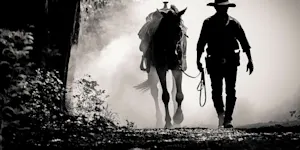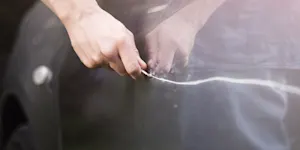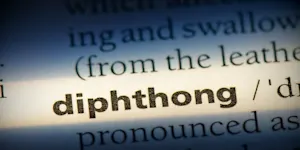What Makes This Word Tick
Ah, "besmirch" — a gem of a word that conjures up images of a clean surface suddenly sullied by some unfortunate smear. It's often used to describe someone tarnishing a reputation or soiling a good name. There's something delightfully old-school about it, like a word you'd hear in a classic courtroom drama or one of those gripping novels where everyone has a secret.
If Besmirch Were a Person…
If "besmirch" were strutting down the street, it would probably wear a long trench coat and a fedora, casting suspicious glances as if to say, "I know something you don't." With a flair for the dramatic, Besmirch enjoys a good whisper campaign and revels in the occasional social scandal.
How This Word Has Changed Over Time
The essence of "besmirch" has remained consistent over the years. Originating from actions like getting dirt on something, it's evolved almost exclusively into a metaphorical sense. While people rarely discuss "besmirched clothes" anymore, you'll still hear about besmirched reputations in juicy gossip and scandalous headlines.
Old Sayings and Proverbs That Use Besmirch
There aren't many old proverbs that use "besmirch" directly. However, the sentiment can be found in expressions about keeping one's name clean. Consider the adage, "A good name is better than riches," which implicitly warns against actions that might besmirch one's character.
Surprising Facts About Besmirch
Did you know that "besmirch" is actually related to the word "smirch"? While "besmirch" is fancy and formal, "smirch" is its relaxed cousin, and they both evoke the same sense of tarnishing. The prefix "be-" intensifies the action, as if to say, "This isn't just any smudge; this is serious!"
Out and About With This Word
You might find "besmirch" cropping up in a heated town council meeting where someone's integrity is on the line. It's also a favorite among mystery novel enthusiasts who love a bit of character assassination. Next time you're sipping tea at a book club, draw out a "besmirch" for an instant literary upgrade.
Pop Culture Moments Where Besmirch Was Used
Movies and TV shows set in the days of yore love this word. You can almost hear it booming in a courtroom scene in a classic film noir, or muttered with disdain in a historical drama. Contemporary pop culture has largely shifted to simpler terms, but "besmirch" makes a grand re-entrance whenever a plot gets particularly tangled.
The Word in Literature
"Besmirch" is the darling of Victorian novels and other works steeped in intrigue and family drama. Writers like Charles Dickens and Agatha Christie might not have shied away from using such a word when revealing the sinister undertones of their characters.
Moments in History with Besmirch
You can imagine "besmirch" perfectly encapsulating the scandal-riddled reign of Henry VIII, where reputations seemed as fragile as eggshells. Whenever a courtier fell from grace, there was a reputation on the line, inevitably besmirched by whispers and accusations.
This Word Around the World
While "besmirch" itself might not have an exact international counterpart, its meaning resonates globally. In French, you might use "ternir" or "salir," and in Spanish, "manchar," each implying that something pure has been dirtied or dishonored.
Where Does It Come From?
"Besmirch" hails from the combination of the prefix "be-" from Old English, used to intensify actions, and "smirch," which means to sully or tarnish. It's baked in linguistic history like a pie crust: familiar yet full of intrigue.
How People Misuse This Word
Some folks casually toss "besmirch" into conversations where "smear" or "stain" would be more apt. "Besmirch" is best saved for more metaphorical or reputational offenses rather than the physical kind, keeping its use more figurative and impactful.
Words It’s Often Confused With
Smear: This often refers to literal stains but can also mean character harm. Used for both literal and metaphorical contexts.
Tarnish: Often used metaphorically, it describes declining integrity or value, especially metal or reputations.
Sully: Synonymous with tarnish and often interchangeable with besmirch in terms of damaging one's good name.
Additional Synonyms and Antonyms
Synonyms include "defame," "denigrate," and "taint." Antonyms like "praise," "commend," and "honor" sit on the opposite side of the reputational scale.
Want to Try It Out in a Sentence?
"When the rumors spread through the village, it didn't take long for the mayor's good name to be thoroughly besmirched."
















